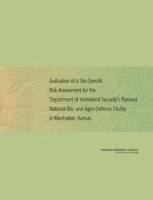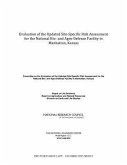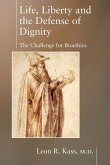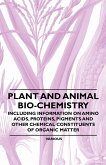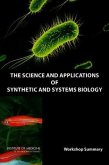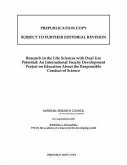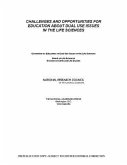Congress requested that the U.S. Department of Homeland Security (DHS) produce a site-specific biosafety and biosecurity risk assessment (SSRA) of the proposed National Bio- and Agro-Defense Facility (NBAF) in Manhattan, Kansas. The laboratory would study dangerous foreign animal diseases--including the highly contagious foot-and-mouth disease (FMD), which affects cattle, pigs, deer, and other cloven-hoofed animals--and diseases deadly to humans that can be transmitted between animals and people. Congress also asked the Research Council to review the validity and adequacy of the document. Until these studies are complete, Congress has withheld funds to build the NBAF. Upon review of the DHS assessment, the National Research Council found "several major shortcomings." Based on the DHS risk assessment, there is nearly a 70 percent chance over the 50-year lifetime of the facility that a release of FMD could result in an infection outside the laboratory, impacting the economy by estimates of $9 billion to $50 billion. The present Research Council report says the risks and costs of a pathogen being accidently released from the facility could be significantly higher. The committee found that the SSRA has many legitimate conclusions, but it was concerned that the assessment does not fully account for how a Biosafety-Level 3 Agriculture and Biosafety-Level 4 Pathogen facility would operate or how pathogens might be accidently released. In particular, the SSRA does not include important operation risks and mitigation issues, such as the risk associated with the daily cleaning of large animal rooms. It also fails to address risks that would likely increase the chances of an FMD leak or of the disease's spread after a leak, including the NBAF's close proximity to the Kansas State University College of Veterinary Medicine clinics and KSU football stadium or personnel moving among KSU facilities.
Hinweis: Dieser Artikel kann nur an eine deutsche Lieferadresse ausgeliefert werden.
Hinweis: Dieser Artikel kann nur an eine deutsche Lieferadresse ausgeliefert werden.

